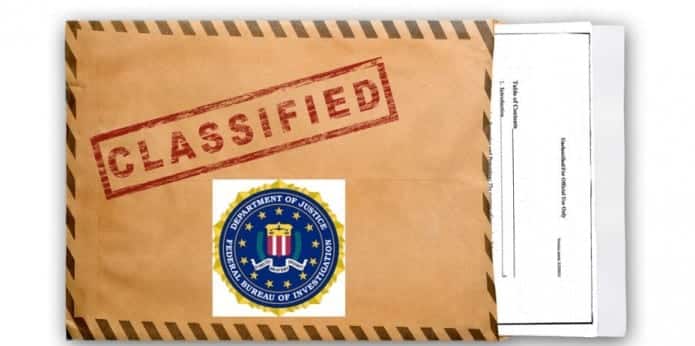Secret FBI National Security Letter (NSL) revealed by the court
It is well known that the premier investigating agency of United States, Federal Bureau of Investigation (FBI) has been secretly tracking user information without judicial oversight since 2001. It sought to spy on Americans through tens of thousands of National Security Letters (NSLs) which have been issued every year without warrants or evidence of probable cause.
However since 2001, the content of these letters remained unknown due to the gag order accompanying them and hush hush policies of US government. One such individual was Nicholas Merrill.
Nicholas Merrill was president of Calyx Internet Access in New York when in 2004, he received a National Security Letter (NSL) demanding that he turn over certain information regarding a subscriber to his service. For the past 11 years, Merrill has waged war with the federal government over the right to acknowledge that he had been sent an NSL and to divulge its contents.
Many companies and individuals have repeatedly challenged these letters, but, to date, no challenges have survived the court system. Importantly because NSLs do not require a warrant or any form of judicial oversight. The only thing necessary is that the agent in charge of the investigation believes that the information to be handed over could be relevant to an ongoing terrorism investigation.
Now passage of 11 years, a US judge has ruled that Merrill may disclose the information the government sought from him, despite ongoing legal efforts to prevent him from doing so. In the ruling, US District Judge Victor Marrero said that Merrill was right in disclosing the information as the scope of NSL was well known to the world.
Judge Marrero also noted that, “many of the remaining redactions in the Attachment are even harder to justify than the categories discussed thus far. For example, the Government seeks to prevent Merrill from disclosing that the Attachment requested “Subscriber day/evening telephone numbers” even though the Government now concedes that the phrase “telephone number” can be disclosed. The Court is not persuaded that there is a “good reason” to believe that disclosure of the fact that the Government can use NSLs to seek both day and evening telephone numbers could result in an enumerated harm, especially if it is already publicly known that the Government can use NSLs to obtain a telephone number, more generally.”
The court’s ruling has made it possible for Merrill to openly talk the NSL he received. The court’s decision “vindicates the public’s right to know how the FBI uses warrantless surveillance to peer into our digital lives,” Merrill said in a press release. “I hope today’s victory will finally allow Americans to engage in an informed debate about the proper scope of the government’s warrantless surveillance powers.”


